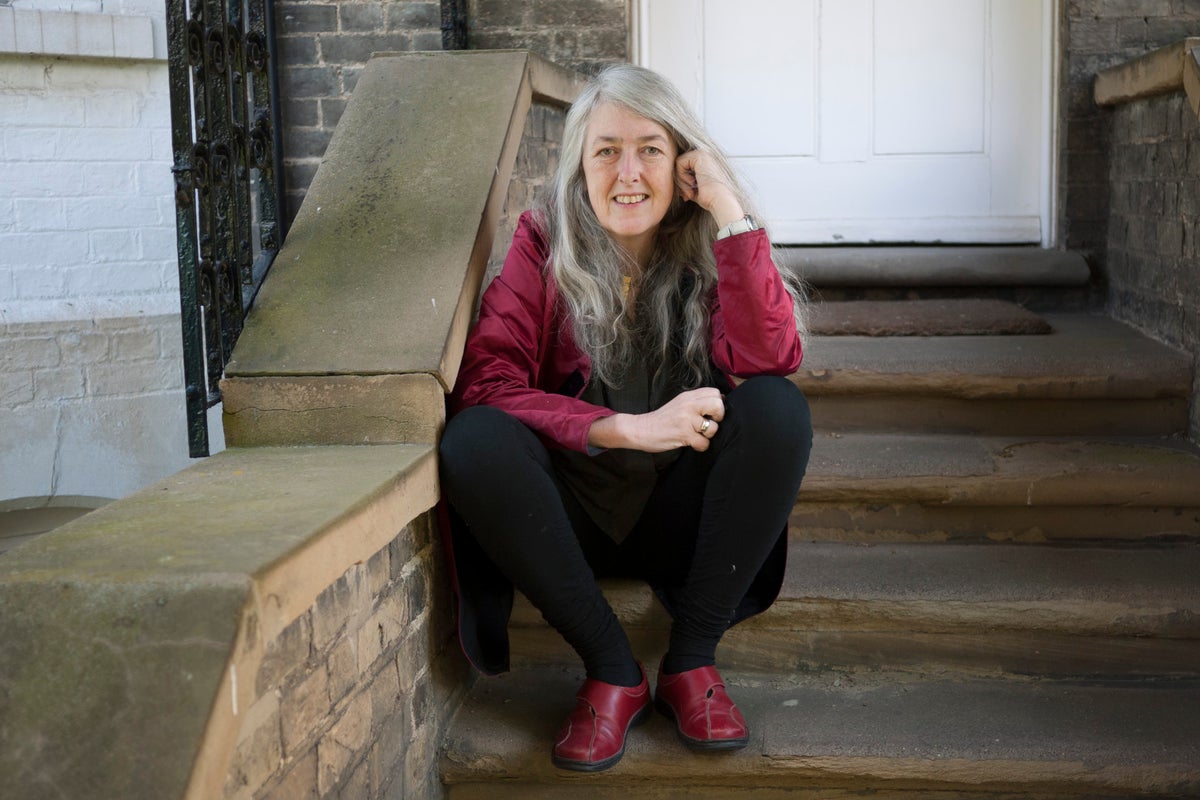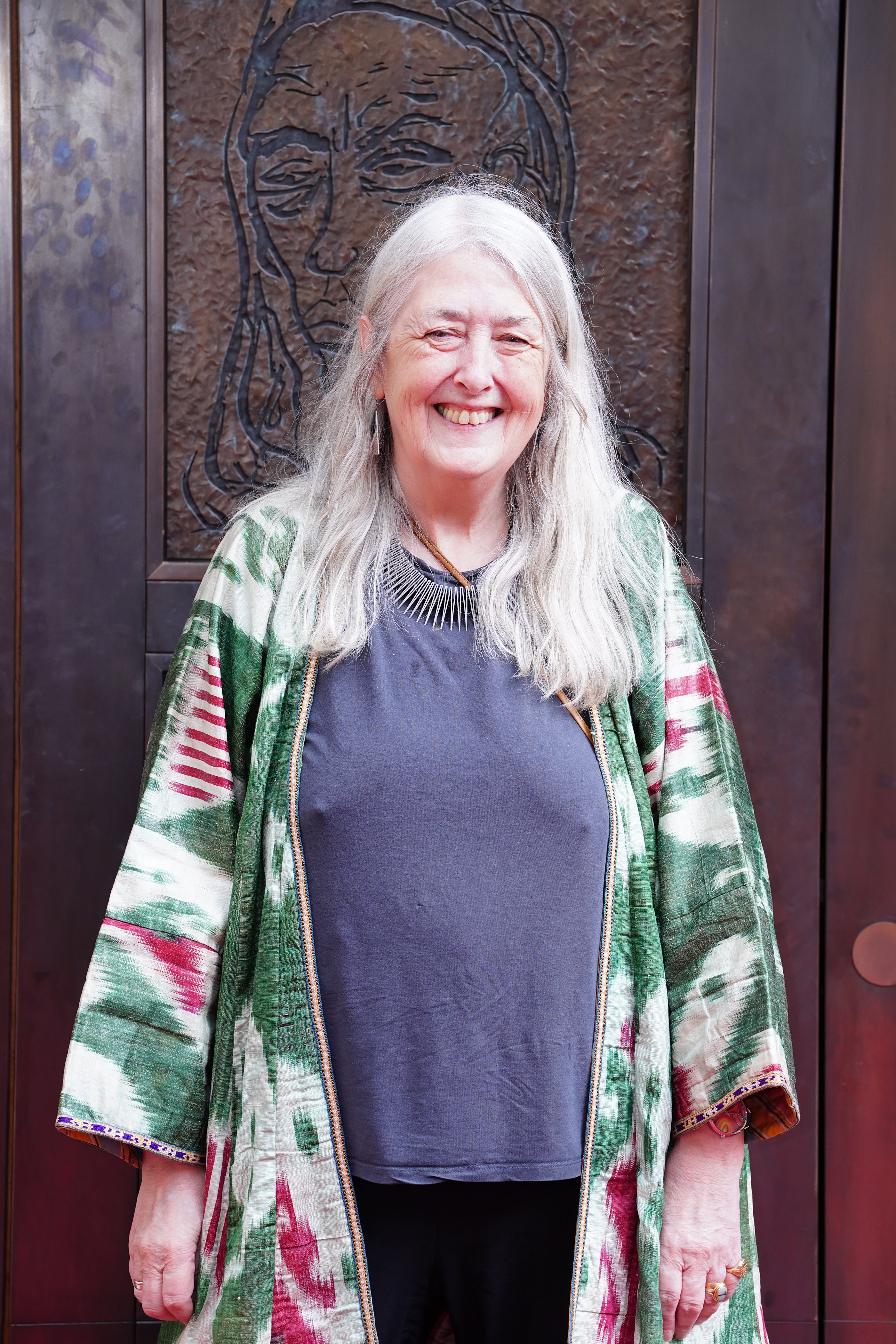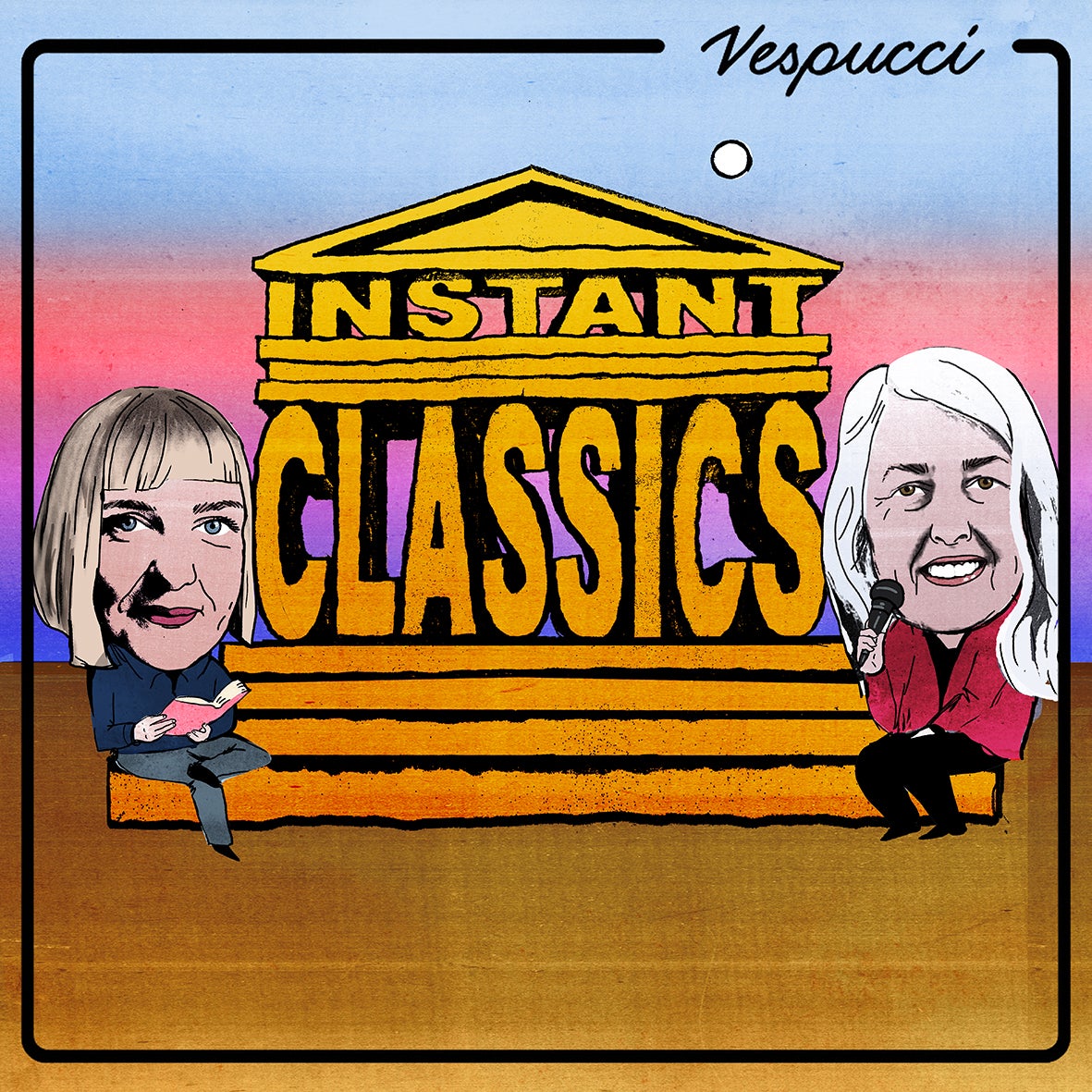
Chatting to classicist Dame Mary Beard makes you incredibly jealous of all the students who had her as their professor at Cambridge University. Thoroughly engaging, her hands flying thoughtfully as she teases out ideas, the Shropshire-born 70-year-old and Fellow of Newnham College is beguiling and quite, quite brilliant.
So it’s good news for us all that she’s launching a new podcast, Instant Classics, alongside The Guardian’s culture writer Charlotte Higgins. “‘Why haven’t we done it before?’ Is the question I’m asking myself,” she says, full of mirth, when quizzed on why now is the moment to join the (some would argue) swollen ranks of podcasters.
“The ancient Greek and Roman world is so with us. It’s in our newspapers when they find something at Pompeii, it’s in our language, it’s in our literature, on our theatres, and there isn’t really a podcast, or anything actually, that takes that whole thing – what it was like then, how we understand it now, what the myths mean – and just works it over in a way that’s fun, accessible, but also with a bit of bottom to it,” she explains.
Yes, there’s some great stuff on telly and radio about the Greeks and Romans (“I’ve done some!”) but often, much of it is too reverential for her liking. With Instant Classics – there’s a parallel book club running too, reading The Odyssey by Homer, ahead of Christopher Nolan’s blockbuster adaptation, out next year – the plan is to show people “the ancient world’s got more for them than they realise”.
“It’s not just stories of wars and battles and the fall of the Roman Empire,” she says. “It’s stories about what women got up to, what women wrote, what it was like to be a child, what was it like putting on a toga? Those seem like terribly trivial questions, but they open up absolutely amazing vistas on how you understand the past,” says Beard, who retired from Cambridge in 2022 and still lives in the city.
The podcast, which she calls “high-fibre fun”, is a chance to be reflective too. “The ancient world is not totally admirable. People say to me, ‘Mary, you must really love the Romans’. And I think, ‘No, I hate them, actually!’ But I do think they are fantastically interesting in a way that isn’t just, ‘They are our inheritance’. We’re not going to be too reverent about them, because I don’t think it does your understanding any good.”

Instant Classics will also be a change, in that it sees two women talking about the ancient world. “Male friends of mine do wonderful podcasts and I’m full of admiration for them, but there is a sense that it is a bit masculine,” says Beard diplomatically. She and Higgins will offer a “different eye on it” and flesh out the fact “there were women in the ancient world, by the way, chaps!” That said, she is clear: “This is not going to be a course in feminism in the ancient world from A to Z.”
Beard, author and classics editor at The Times Literary Supplement, also adds that she does find reports of ‘men thinking daily about the Roman Empire’ amusing. “I always tell them, I think about it more than that. I think about the Roman Empire 50 times a day!”
The day before we meet, news has broken that those aged 70-plus could be required to take compulsory eye tests to continue driving. She agrees with the plan, but dislikes how the story was handled. “The reporting of that was so terrible, ‘Everyone over 70 is going to be FORCED to take an eye test and then BANNED from driving. Sorry, guys, do we want people who can’t see driving cars?”
She said the story pointed towards a darker truth. “We haven’t worked out what we think about older people; what it means that I’ve got white hair,” she says, touching her now famous grey-white tresses, which have suffered much scrutiny. “I couldn’t now colour it, because people would say I’d given in,” she adds wryly.
What about doing a Digging For Britain’s Alice Roberts, and going pink? “I did once have a pink streak,” says Beard pensively. “I might do another.
“We don’t very often ask the big questions about: what do we think a life is?” she continues. “And it’s changed so much. In my parents’ generation, you only expected to live five years after you retired, and now, touch wood…”

Having recently joined the septuagenarian club, Beard considers herself an “extremely privileged older person” largely because she had a “gold-plated pension”. “There are people who can’t manage, but a happy, fulfilled and contributing group of pensioners is just good for the country and it’s good for them,” she says. “It’s a question of how to make people feel valued, but in order to make them feel valued, they have to not feel on the breadline.”
Does she worry about getting older? “We can fantasise about how many years we’ve got left, but we know what the end is. It’s not a mystery,” she says pragmatically. “You get someone’s name wrong and in the past, you’d say, ‘I can be so forgetful’. Now I think, ‘Oh, my God. Is it a symptom of dementia?’ I’m having the time of my life, but it is tempered – this is time-limited, guys.”
This year marks 40 years married to Byzantine art specialist Robin Cormack, with whom Beard has two children. From those four decades she has learned to “not always open your mouth and say what you really think; sometimes it’s better to shut up,” she says with a laugh. “We’ve got lots of things to talk about, which is different, I think, from what we used to talk about. I can go to an art gallery with Robin, I come away and he’s opened my eyes, and still, he’s noticed things I don’t notice,” she says. “That’s the thing that keeps you interested.”
Instant Classics will be available weekly from August 28. Plus bonus Instant Classics Book Club episodes every fortnight for subscribers.
Megan McKenna hits back after criticism for son’s ‘dangerous’ lunch
Inside Kim Kardashian’s luxury private jet as she surprises children with Cabo trip
Julia Bradbury shares unseen video just hours after undergoing mastectomy
5 Seconds of Summer star reveals first pictures of baby in surprise announcement
Molly-Mae drops huge Tommy relationship hint with home update
Ellen DeGeneres shares clip of wife ‘living her dream’ in English countryside







